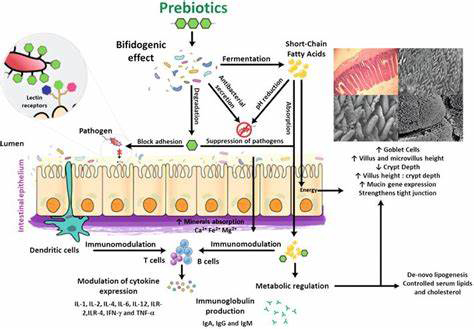
Prebiotics are non-digestible ingredients that stimulate the growth and activity of beneficial gut bacteria. They promote gut health and improve feed efficiency.
Prebiotics for poultry feed are non-digestible compounds or substances that promote the growth and activity of beneficial gut bacteria in poultry. These compounds serve as a source of nourishment for the beneficial microorganisms in the gastrointestinal tract, contributing to improved gut health, digestion, and overall well-being of the birds. Prebiotics are an important component of poultry nutrition and are often used in conjunction with probiotics to maintain a balanced gut microbiota. Here's an overview of prebiotics in poultry feed:
Benefits of Prebiotics in Poultry Feed:
- Promotes Beneficial Gut Microbiota: Prebiotics provide a source of nutrition for beneficial bacteria like Lactobacillus and Bifidobacterium, which help maintain gut balance.
- Enhances Nutrient Absorption:By promoting a healthy gut microbiota, prebiotics improve nutrient absorption and utilization, which can lead to better growth and performance.
- Immune System Support: A well-balanced gut microbiota contributes to a strong immune system, helping poultry resist diseases and infections.
- Reduces Pathogen Growth: Prebiotics can inhibit the growth of harmful pathogens in the gut, reducing the risk of diseases.
Common Types of Prebiotics Used in Poultry Feed:
- Fructooligosaccharides (FOS): FOS are naturally occurring prebiotics found in various plant materials. They are commonly used in poultry feed to support gut health.
- Inulin: Inulin is another type of naturally occurring prebiotic that is used in poultry nutrition to promote the growth of beneficial gut bacteria.
- Mannan Oligosaccharides (MOS): MOS are derived from the cell walls of yeast and are known for their ability to bind to harmful pathogens and remove them from the gut.
- Galactooligosaccharides (GOS): GOS are prebiotics that can enhance gut health in poultry and improve nutrient absorption.
Administration of Prebiotics:
Prebiotics can be administered in poultry feed in various ways:
- Direct Addition to Feed: Prebiotics can be added directly to the feed, often in the form of a dry powder or granules. They are usually mixed into the feed during production.
- Incorporation in Pellets: Some prebiotics are included in pellet formulations, ensuring that poultry receive them consistently in their diet.
- Liquid Formulation: In some cases, prebiotics are available in liquid form and can be added to the drinking water of the birds.
Considerations:
When using prebiotics in poultry feed, it's important to consider:
- Selection of Prebiotic Type: Different prebiotics have varying effects on gut health, and the choice of the appropriate prebiotic type should align with specific poultry nutrition goals.
- Proper Dosage: Correct dosing of prebiotics is essential to achieve the desired effects and maximize their benefits.
- Regulatory Compliance: Depending on the region, there may be regulations
governing the use of prebiotics in animal feed, so it's important to ensure compliance. Prebiotics are an important tool for poultry nutrition and can contribute to improved gut health, better digestion, and enhanced overall poultry performance. Consultation with a veterinarian or poultry nutritionist is recommended to effectively incorporate prebiotics into poultry feeding programs.
